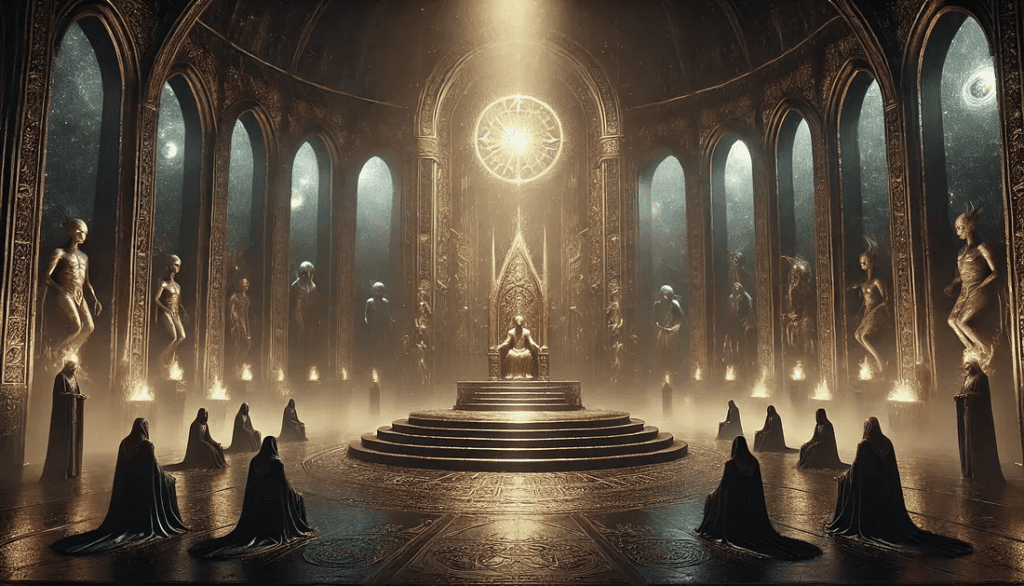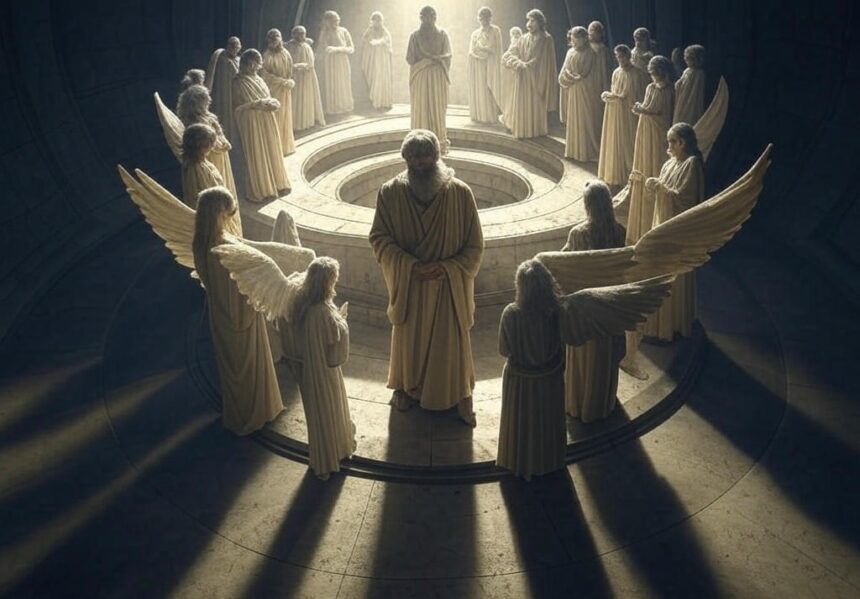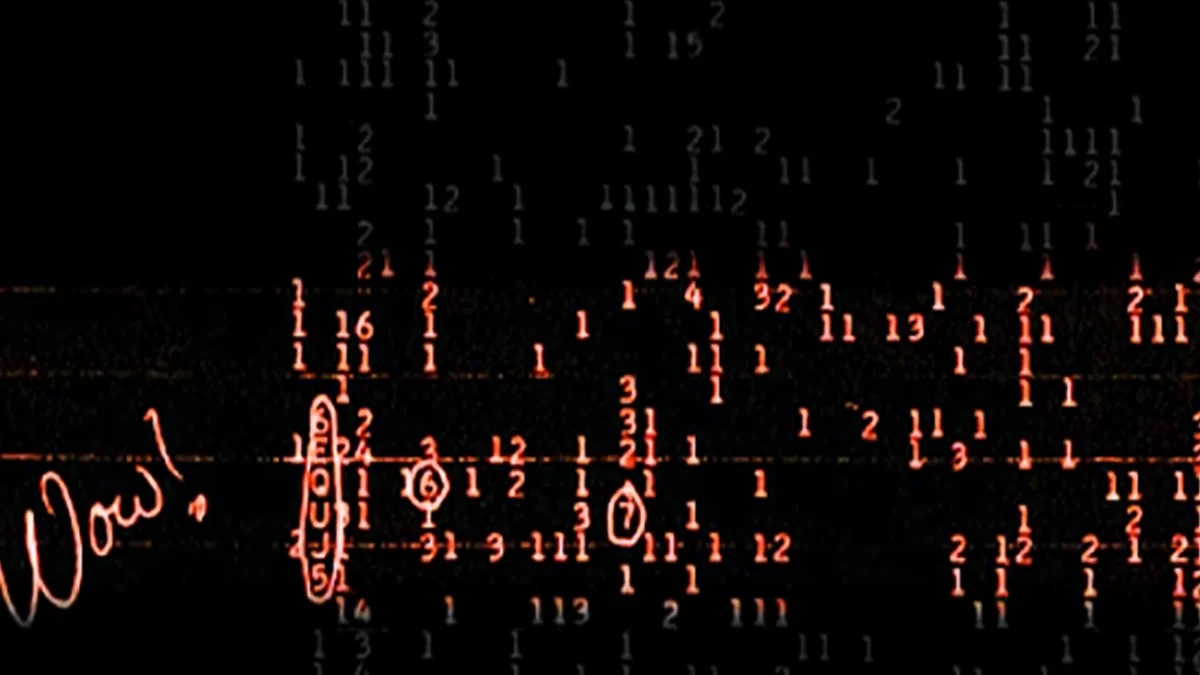What if everything you’ve been taught about God is only part of the story? Tucked within the pages of the Bible lies a secret so profound it challenges the foundations of traditional Judaism and Christianity: God doesn’t rule alone. Instead, He presides over a Divine Council—a celestial assembly of supernatural beings who assist in governing the universe.
This concept, often ignored or downplayed by preachers, reveals a complex and dynamic divine hierarchy that redefines our understanding of monotheism.
What Is the Divine Council?
The Divine Council is God’s supernatural advisory board—a group of divine beings, sometimes called “gods” or “sons of God,” who operate under His supreme authority. Unlike the simplified narrative of one God, angels, demons, and humans, the Bible paints a richer picture. These beings aren’t equal to God but serve as His counselors, messengers, and regional rulers, executing His will across the cosmos. This idea, rooted in ancient Israelite beliefs, flips modern theology on its head, suggesting a divine teamwork that’s far from the solitary throne many imagine.
Biblical Evidence: The Scriptures Speak
The Bible doesn’t shy away from mentioning the Divine Council, though its references are often glossed over in sermons. Let’s examine the key passages that lay bare this hidden truth:
Psalm 82:1—A Gathering of Gods
“God stands in the divine assembly; He pronounces judgment among the gods.”
This verse, found in Psalm 82:1 (or 81:1 in some translations), is a theological bombshell. The Hebrew word Elohim appears twice here—once for God and once in the plural, referring to other “gods.” These aren’t human judges or metaphors, as some claim, but supernatural entities in a heavenly council. The imagery is clear: God presides over a divine assembly, issuing judgments like a cosmic ruler.
Psalm 89:6–7—Sons of God in Heaven
“For who in the heavens can be compared to the Lord? Who among the sons of God is like the Lord?”
Psalm 89 (or 88 in some versions) reinforces this idea, describing “sons of God” (bene elim in Hebrew) as heavenly beings distinct from humans. These figures dwell in the divine realm, subordinate to God yet part of His celestial court. The phrase “sons of God” appears elsewhere (e.g., Job 1:6, 2:1), consistently referring to divine entities, not mortals.
Deuteronomy 32:8–9—A World Divided
“When the Most High gave the nations their inheritance, when He divided all mankind, He set up boundaries for the peoples according to the number of the sons of God. But the Lord’s portion is His people, Jacob His allotted inheritance.”
This passage unveils a cosmic hierarchy. The “Most High” (El Elyon), identified as God, assigns nations to lesser divine beings—referred to as “sons of God” in older manuscripts like the Dead Sea Scrolls. Yahweh, the God of Israel, claims Israel as His special domain, while other nations fall under the oversight of subordinate gods. This suggests a polytheistic worldview in early Israel, later refined into monotheism.
1 Kings 22:19–22—A Divine Strategy Session
“Micaiah said, ‘I saw the Lord sitting on His throne, with all the host of heaven standing by Him on His right and on His left. The Lord said, “Who will entice Ahab to go up and fall at Ramoth-Gilead?” One spirit said one thing, another said another. Then a spirit came forward and stood before the Lord, saying, “I will entice him.” The Lord asked, “How?” He replied, “I will go out and be a lying spirit in the mouth of all his prophets.”’”
This vivid scene depicts God holding court with His divine team, debating strategy and delegating tasks. Far from micromanaging, God solicits ideas and approves a plan involving a “lying spirit”—a divine being tasked with influencing human events. This collaborative dynamic challenges the image of an all-controlling deity.
The Ancient Context: A Polytheistic Past
To understand the Divine Council, we must step back to ancient Israel’s cultural roots. Early Israelites didn’t always embrace strict monotheism. Instead, they worshipped Yahweh as the “Most High” within a broader pantheon, where lesser gods oversaw other nations. This worldview mirrors neighboring cultures, like the Canaanites, who revered El as the chief god with a council of divine sons. Over time, as Judaism evolved, these lesser gods were demoted to angels or dismissed as metaphors to align with monotheistic doctrine. Yet, the Bible’s older texts preserve traces of this earlier belief system.
For example, El Elyon (Most High) and Yahweh appear as distinct titles in some passages, hinting at a chief god delegating authority to a subordinate (Yahweh) who later became synonymous with the one God. This shift reflects Israel’s theological journey from henotheism—worshipping one god while acknowledging others—to exclusive monotheism.
Why Does God Need a Council?
If God is omnipotent, why involve a council? The Bible suggests He chooses to delegate, operating like a king with advisors rather than a lone dictator. The Divine Council handles tasks like:
- Governance: Overseeing nations and cosmic affairs (Deuteronomy 32:8–9).
- Judgment: Enforcing divine justice (Psalm 82:2–4).
- Mediation: Acting as messengers or agents, like the “lying spirit” in 1 Kings 22.
This delegation doesn’t diminish God’s power but highlights His sovereignty through a structured hierarchy. It also mirrors human institutions, where leaders rely on trusted subordinates, making the divine realm relatable to ancient audiences.

Echoes in the New Testament
The Divine Council isn’t confined to the Old Testament. Jesus and Paul drop hints that align with this concept, adapting it to a new theological era:
- John 10:34–36: Jesus quotes Psalm 82, saying, “Is it not written in your Law, ‘I have said you are gods’?” He uses this to defend His claim to divinity, implying that divine beings exist within God’s framework.
- Ephesians 6:12: Paul warns of “principalities and powers” in the heavenly realms—supernatural rulers echoing the Divine Council’s regional overseers.
These references suggest early Christians didn’t entirely erase the council but reframed it within a monotheistic lens, casting lesser beings as angels or spiritual forces.
Why Is the Divine Council Hidden?
If the Divine Council is so prominent in Scripture, why isn’t it preached from pulpits? The answer lies in theological evolution and institutional priorities:
- Monotheistic Overhaul: As Judaism and Christianity solidified monotheism, the idea of other “gods” became problematic. By the Second Temple period (circa 500 BCE), texts were reinterpreted to emphasize one God, relegating council members to angelic roles.
- Simplifying Doctrine: Early Church leaders favored a clear hierarchy—God, angels, humans—to avoid confusion or accusations of polytheism. The Divine Council’s complexity didn’t fit this mold.
- Translation Bias: Modern Bible translations often soften terms like Elohim (gods) to “judges” or “angels” to align with monotheistic expectations, obscuring the original meaning.
The result? A sanitized theology that sidelines the Bible’s raw, multifaceted portrayal of the divine realm.
Apologists’ Defenses: Dodging the Truth?
Theologians and apologists have long grappled with the Divine Council, offering explanations to reconcile it with monotheism:
- Human Judges Theory: Some claim Elohim in Psalm 82 refers to human rulers, not gods. Yet, the context—God judging in a divine assembly—points to supernatural beings.
- Angels, Not Gods: Others argue “sons of God” are merely angels, stripping them of divine status. This ignores texts like Job 1:6, where they’re clearly distinct from typical angels.
- Metaphorical Spin: A few dismiss the council as poetic imagery, but the consistency across multiple books (Psalms, Deuteronomy, 1 Kings) suggests a literal belief.
- Supreme Ruler Argument: Apologists admit the council exists but insist it doesn’t challenge God’s sovereignty, likening it to a king’s court. This sidesteps the implications of plural Elohim.
These defenses often prioritize doctrine over textual evidence, bending Scripture to fit modern beliefs rather than letting it speak for itself.
Implications for Faith and Understanding
The Divine Council reshapes how we view God and the Bible:
- A Relational God: God’s collaboration with divine beings suggests a relational, not solitary, nature, inviting us to rethink divine authority.
- Biblical Complexity: Acknowledging the council reveals the Bible as a tapestry of evolving beliefs, not a monolithic text, encouraging deeper study.
- Theological Humility: Accepting that ancient Israelites saw God differently challenges rigid dogmas, fostering openness to mystery.
For believers, it’s a call to engage with Scripture honestly, beyond sanitized interpretations. For skeptics, it’s evidence of the Bible’s human and cultural roots, rich with mythological undertones.
Why Does This Matter in 2025?
In an era of spiritual curiosity and skepticism, the Divine Council resonates for several reasons:
- Search for Truth: People crave unfiltered perspectives on sacred texts, especially those challenging institutional narratives.
- Pop Culture Appeal: Shows like Supernatural and books exploring ancient myths make divine hierarchies a hot topic, driving interest in Biblical cosmology.
- Interfaith Dialogue: Understanding Israel’s polytheistic roots fosters conversations with other faiths, like Hinduism or paganism, that embrace divine councils.
By unveiling this secret, we bridge ancient wisdom with modern questions, making faith—or at least curiosity—more dynamic.
The Bible’s Untold Story
The Divine Council is the Bible’s best-kept secret—a celestial assembly that upends traditional views of God’s solitary rule. From Psalm 82’s “gods” to 1 Kings’ divine strategy sessions, Scripture reveals a God who delegates, collaborates, and reigns over a cosmic team. Buried by centuries of monotheistic editing, this truth invites us to read the Bible with fresh eyes, embracing its complexity and questioning what we’ve been taught. As we seek meaning in a chaotic world, the Divine Council reminds us that even the heavens are more intricate—and collaborative—than we ever imagined.

















